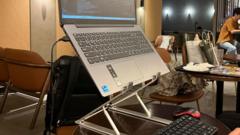In South Korea, a growing friction is emerging within the vibrant cafe culture, particularly in urban student enclaves. Owners of coffee shops and study cafes are increasingly grappling with a distinct clientele: students who set up elaborate workstations, often involving multiple devices and power adapters, occupying tables for hours while making minimal purchases. This phenomenon, colloquially described as “two laptops, six plugs,” highlights the tension between cafes as businesses needing customer turnover and the students’ need for affordable, conducive study spaces.
Cafe operators report significant challenges arising from these long-stay customers. Prime seating areas become occupied for extended periods by individuals purchasing only a single drink or snack, leading to reduced table turnover and hindering overall profitability. The heavy, prolonged use of electricity for charging numerous devices and the consistent demand on Wi-Fi bandwidth also strain cafe resources. Furthermore, the atmosphere of a bustling social or relaxed environment can shift, potentially deterring other customers who seek a more traditional cafe experience.
From the students’ perspective, cafes offer an attractive alternative to often cramped or noisy dorm rooms and expensive dedicated study rooms. They provide a comfortable, well-lit environment with readily available Wi-Fi and power outlets, fostering a productive ambiance for academic work. The relatively low cost of a single beverage often outweighs the inconvenience or lack of suitable study spaces elsewhere, making cafes an unofficial extension of university libraries or personal study nooks.
This issue mirrors similar global trends, such as the situation where Starbucks locations have reportedly had to ask customers to refrain from bringing in and operating personal printers for work-related tasks. Such instances underscore a broader societal shift where cafes are increasingly viewed as de facto coworking or study hubs, blurring the lines between a casual leisure spot and a full-service office. As this dynamic evolves, cafes in South Korea and beyond are exploring various strategies, including implementing time limits, minimum spend requirements, or even designing specific areas for focused work to balance customer needs with business sustainability.



